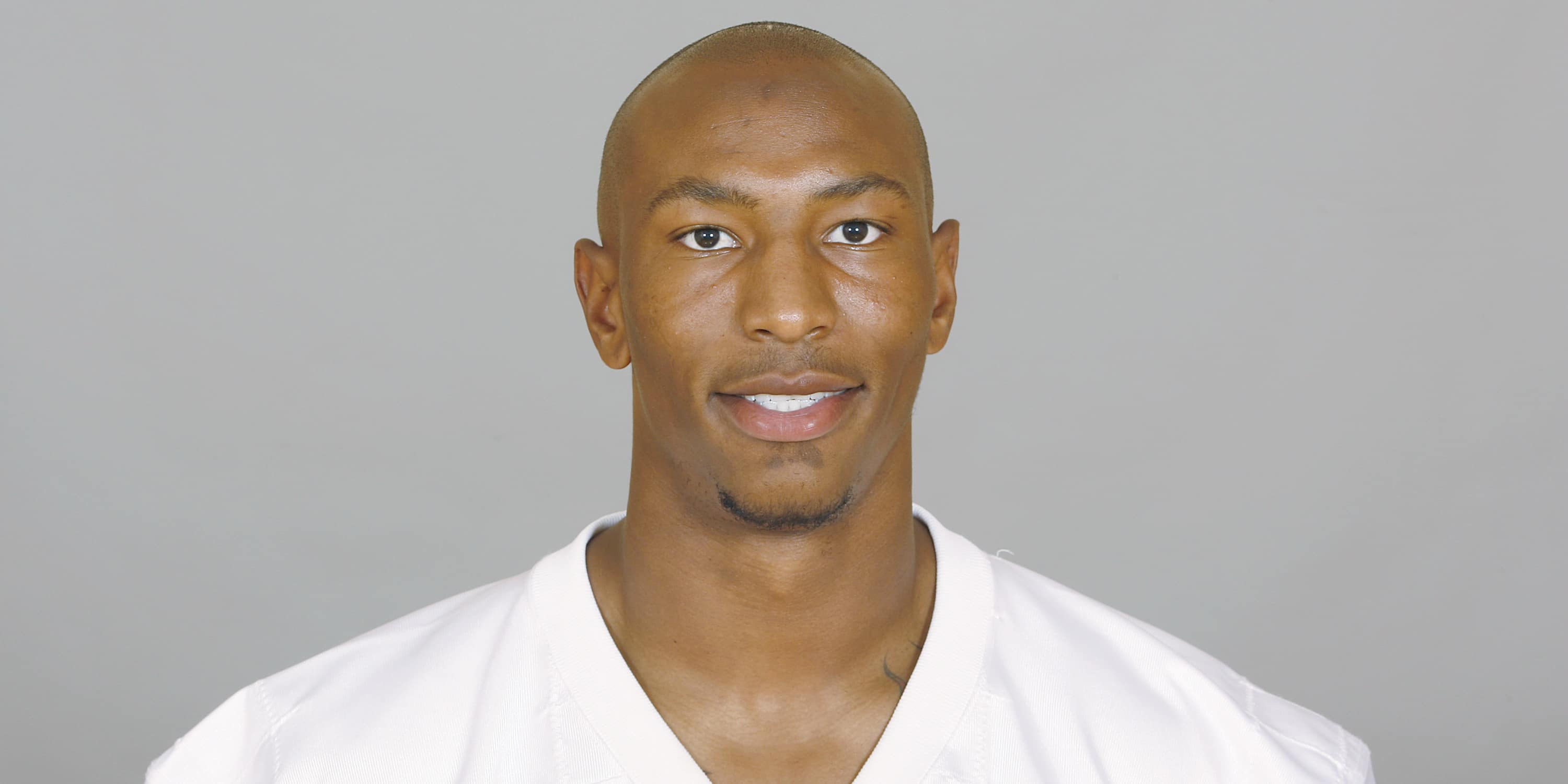There's a real curiosity, it seems, about the financial standings of public figures, and searches for things like Jarrett Hurd net worth certainly show that interest. It's almost as if we want to get a glimpse behind the curtain, to see what success truly looks like in monetary terms.
People often look for precise figures, you know, a definitive number for someone's wealth. But the truth is, the financial picture for most individuals, especially those not running publicly traded companies, can be quite complex and, frankly, very private. It's not always a simple calculation you can just pull from a quick search.
As a matter of fact, the information provided for this article, which talks about a company named "Jarrett" – a logistics firm with its CEO Mike Jarrett, and even mentions an interesting Chinese idiom, "西装革履" – doesn't actually contain any specific details about Jarrett Hurd, the boxer. So, while we can explore the general ideas behind net worth and why people are so interested in it, we won't be sharing any exact figures for him here, simply because that data isn't in our source material.
Table of Contents
- Understanding What Net Worth Really Means
- Jarrett Hurd: A Quick Look at the Boxer's Career
- Personal Details: What We Know (and Don't)
- The Financial World of Professional Boxing
- How Boxers Earn Their Keep
- The Costs Behind the Ropes
- Why Are We So Interested in Net Worth?
- Estimating Wealth: More Art Than Science
- Beyond the Numbers: Lessons from Business Leaders
- Common Questions About Athlete Finances
Understanding What Net Worth Really Means
When folks talk about "net worth," they're basically looking at a financial snapshot. It's really just a simple equation: what you own minus what you owe. So, you add up all your assets – that's your cash, your investments, any property you have, maybe even valuable possessions like cars or jewelry. Then, you subtract all your liabilities, which are your debts – things like mortgages, loans, or credit card balances. The number you're left with is your net worth.
For an individual, this figure can shift quite a bit, you know, depending on market changes, spending habits, or new earnings. It's not a fixed thing, by any means. It's more of a moment-in-time calculation, giving a general idea of someone's financial standing at that particular point.
It's also worth remembering that what counts as an asset or a liability can vary. For a public figure, their "brand" or future earning potential might be seen as an intangible asset, though it's not usually included in a strict net worth calculation. But, it certainly influences their overall financial picture and opportunities, that's for sure.
Jarrett Hurd: A Quick Look at the Boxer's Career
Jarrett Hurd, often called "Swift," has made quite a name for himself in the boxing world. He's known for his impressive run as a unified light middleweight champion, which, you know, involved some really tough fights and big wins. His professional career has seen him face some top-tier opponents, showcasing his skill and determination in the ring. He's certainly someone who has achieved a high level of success in a very demanding sport, which tends to capture public attention.
His journey in boxing, like many professional athletes, has been one of dedication and hard work, starting from amateur days and moving up through the ranks. That path, it turns out, is a long one, requiring a lot of sacrifice and commitment. People are naturally curious about what kind of financial rewards come from such a challenging career, especially when someone reaches the pinnacle of their sport.
Personal Details: What We Know (and Don't)
When it comes to public figures, there's often a mix of publicly available information and details that remain private. For someone like Jarrett Hurd, while his professional achievements are well-documented, some personal financial specifics are not typically shared widely. This table shows the kinds of personal and professional details people often seek when trying to understand a public figure's background and potential wealth, though, as mentioned, specific figures for Jarrett Hurd are not part of the source material provided.
| Category | Details (General, as specific information is not in "My text") |
|---|---|
| Full Name | Jarrett Hurd |
| Profession | Professional Boxer |
| Birthdate | Not publicly disclosed in the provided text |
| Place of Birth | Not publicly disclosed in the provided text |
| Nationality | American (implied by career context) |
| Height | Not publicly disclosed in the provided text |
| Weight Class | Light Middleweight (former unified champion) |
| Pro Record | Varies over time (check official boxing records for current status) |
| Major Titles | Former IBF and WBA (Super) Light Middleweight Champion |
| Years Active | Not publicly disclosed in the provided text |
| Known Residence | Not publicly disclosed in the provided text |
| Marital Status | Not publicly disclosed in the provided text |
| Children | Not publicly disclosed in the provided text |
The Financial World of Professional Boxing
The financial landscape for professional boxers is, you know, pretty unique and can be incredibly lucrative for those at the top. It's not just about winning fights; there are many streams of income that contribute to an athlete's overall financial standing. This system is complex, with various parties taking a cut along the way, so the gross earnings don't always reflect what an athlete actually takes home.
For instance, the big names in boxing can command huge sums, but even for them, a lot of planning and negotiation goes into every single bout. It's a high-stakes game, financially speaking, with a lot of moving parts that affect how much money flows in and out of a boxer's accounts.
How Boxers Earn Their Keep
Boxers primarily earn money through their fight purses, which are the guaranteed payments they receive for stepping into the ring. For major fights, especially those on pay-per-view (PPV), a boxer's purse can be incredibly substantial, often including a share of the PPV revenue and ticket sales. This means that the more popular the fight, the more money a boxer can potentially earn, which is why building a fan base is so important, actually.
Beyond the fight itself, endorsements play a very big role. Athletes, especially champions, attract brands looking to promote their products. These can be deals with apparel companies, sports equipment manufacturers, supplement brands, or even broader lifestyle products. These endorsement deals can range from simple product placements to multi-year contracts worth millions, providing a steady income stream outside of actual fights. So, a boxer's appeal outside the ring matters a lot, too.
There are also sponsorship opportunities, where companies pay to have their logos displayed on a boxer's shorts, robes, or training gear. Media appearances, interviews, and even social media promotions can also bring in additional income. Some boxers, like your really big stars, might even have their own merchandise lines or invest in businesses, further diversifying their income. It's a whole ecosystem of earning, really, and it's almost always more than just the punch itself.
The Costs Behind the Ropes
While the earnings can be massive, it's very important to remember that professional boxing comes with significant costs. It's not just pure profit, you know. Boxers have a whole team they need to pay, and these expenses can eat into a large portion of their gross earnings. For example, trainers, coaches, sparring partners, and conditioning specialists all need to be compensated for their expertise and time. Setting up a proper training camp can involve travel, accommodation, and facility rentals, which adds up quite a bit.
Then there are management fees. Most professional boxers work with a manager who handles their career, negotiates fights, and generally looks out for their interests. These managers typically take a percentage of the boxer's earnings, often around 10-15%. Promoters also take a cut, sometimes a substantial one, for organizing the fights, marketing them, and securing venues. So, a significant chunk of the purse is gone before the boxer even sees it, pretty much.
Medical expenses are another big consideration, given the nature of the sport. Regular check-ups, injury treatments, and rehabilitation can be costly. Travel expenses for fights, especially international ones, can also add up. And, of course, there are taxes. Professional athletes, particularly those earning high incomes, face significant tax obligations on their earnings. So, while the gross numbers might look huge, the net amount can be considerably less, which is something people often overlook.
Why Are We So Interested in Net Worth?
There's a deep-seated human curiosity about wealth, isn't there? When it comes to public figures like athletes or celebrities, this interest seems to intensify. People often search for "Jarrett Hurd net worth" or similar queries for a few reasons. Part of it is just simple fascination with success and what it brings. We see these individuals performing at the highest levels, and there's a natural inclination to wonder about the rewards of such extraordinary talent and dedication.
For some, it might be about inspiration. Seeing someone achieve significant financial success through their chosen path can be motivating, showing what's possible with hard work and determination. Others might use it as a point of comparison, perhaps wondering how their own financial journey stacks up, or just trying to understand the economic scale of different professions. It's almost like a way to gauge the value placed on certain skills or entertainment.
And then, there's the storytelling aspect. Wealth often plays a role in the narrative of a public figure's life, showing their journey from humble beginnings to significant prosperity, or perhaps the challenges of managing newfound riches. It adds another layer to their public persona, and people are generally drawn to compelling stories, that's just how it is. It's about more than just the numbers; it's about the bigger picture of achievement and lifestyle.
Estimating Wealth: More Art Than Science
Trying to pinpoint an exact net worth for someone like Jarrett Hurd, or any private individual for that matter, is often more of an educated guess than a precise calculation. This is because a lot of a person's financial details are, by nature, private. Unlike publicly traded companies that have to disclose their financials, individuals don't have the same requirements. So, when you see figures reported online, they are usually estimates based on publicly available information, which can be limited.
These estimates typically consider known fight purses, major endorsement deals that have been announced, and general assumptions about expenses and investments. However, they don't usually account for private investments, undisclosed business ventures, or personal liabilities like mortgages or other debts. For instance, a logistics company like Jarrett, which provides "supply chain visibility" and detailed "reporting to help you maximize your productivity on the road," is all about transparency in its operations. But for an individual, that level of financial visibility just isn't there, and that's usually by design.
Furthermore, the value of assets can fluctuate. Real estate values change, stock market investments go up and down, and even the value of a brand endorsement can shift over time. So, any reported net worth figure is really just a snapshot, and it can become outdated quite quickly. It's a bit like trying to guess the exact number of jelly beans in a jar – you can make a pretty good estimate, but you're unlikely to hit the precise figure without counting them all, and in this case, the jar is often hidden from view.
Beyond the Numbers: Lessons from Business Leaders
While the focus here is on individual net worth, it's useful to think about different kinds of value, like what you find in the business world. For instance, "My text" talks about Mike Jarrett, CEO at Jarrett, and Don De Luzio, CEO at Trinity Surfaces, who share their perspectives on building and nurturing company culture. This is a very different kind of "worth" than personal finances, but it's incredibly important for long-term success, too.
They talk about how leaders drive a company forward, which is about more than just profit margins; it's about creating an environment where people thrive. Jarrett transportation services, for example, offers things like "freight bill auditing and payment" and "reduced fuel surcharges," which are about operational efficiency and saving money for clients. This shows a focus on building tangible value through services, rather than just accumulating personal wealth. It's a different kind of financial success, rooted in providing excellent service and fostering strong relationships, which is a big part of what makes a company valuable, you know.
The company's vision, as stated in "My text," is "to be the best logistics company in the industry—providing excellent customer service." This vision speaks to a value system that extends beyond just the bottom line. It's about reputation, reliability, and sustained growth. So, while we're often drawn to the simple number of a person's net worth, it's also worth considering the complex structures and values that build enduring success, whether in a business or a personal career. It's not just about the money, but what goes into earning and sustaining it. And just to throw in a piece from "My text" that's completely unrelated to finance, the Chinese idiom "西装革履" (meaning wearing a suit and leather shoes for a formal look) shows how presentation matters, too, whether it's for a person or a business. You can learn more about business culture on our site, and how companies like Jarrett focus on growth and service by checking out their client success stories.
Common Questions About Athlete Finances
People often have a lot of questions about how athletes manage their money, especially when they reach the top of their game. It's a natural curiosity, as their careers can be short and intense, with earnings often concentrated in a few peak years. Here are a few common questions that come up, similar to what you might find in a "People Also Ask" section on a search engine, and some general thoughts on them.
How do professional boxers manage their money effectively?
Professional boxers, especially those earning significant sums, typically work with a team of financial advisors, accountants, and wealth managers. These professionals help them plan for taxes, manage investments, and create strategies for long-term financial security. Since a boxing career can be relatively short, planning for post-retirement life is very important. They might invest in real estate, stocks, or even start their own businesses to create diversified income streams. It's not just about making money; it's about keeping it and making it grow, too.
What are the biggest financial challenges for athletes like Jarrett Hurd?
One of the biggest challenges for athletes is the unpredictable nature of their income. Injuries can derail a career very quickly, and performance can fluctuate, impacting fight purses and endorsement deals. Also, the high expenses associated with training, management, and travel can be a drain on earnings. There's also the pressure to maintain a certain lifestyle, which can lead to overspending if not managed carefully. And, you know, the temptation of quick, risky investments can be a problem too, so careful advice is key.
How does a boxer's public image affect their earning potential and net worth?
A boxer's public image plays a huge role in their earning potential, that's for sure. A positive, engaging image can attract more fans, leading to bigger fight purses through higher ticket and pay-per-view sales. Brands are also much more likely to partner with athletes who have a good reputation and resonate with the public, leading to lucrative endorsement deals. Conversely, a negative image can limit opportunities and even lead to the loss of existing sponsorships. So, it's not just about winning in the ring; it's about winning over the public, which really affects the bottom line.



Detail Author:
- Name : Dr. Allene Mueller
- Username : hpollich
- Email : ofelia69@marvin.com
- Birthdate : 1980-05-10
- Address : 712 Annabelle Stravenue Dedrichaven, ID 78695
- Phone : 602-977-1829
- Company : Windler-Abshire
- Job : Personal Service Worker
- Bio : Molestiae nulla assumenda modi quibusdam enim nisi. Velit odio at numquam fugit cum eos nisi.
Socials
instagram:
- url : https://instagram.com/grayce_connelly
- username : grayce_connelly
- bio : Dignissimos placeat adipisci dolor fugit dolor. A impedit est perspiciatis magni.
- followers : 1910
- following : 1583
facebook:
- url : https://facebook.com/grayce_xx
- username : grayce_xx
- bio : Repellat illo tempora nemo doloribus. Laudantium et dolorem in.
- followers : 962
- following : 2874